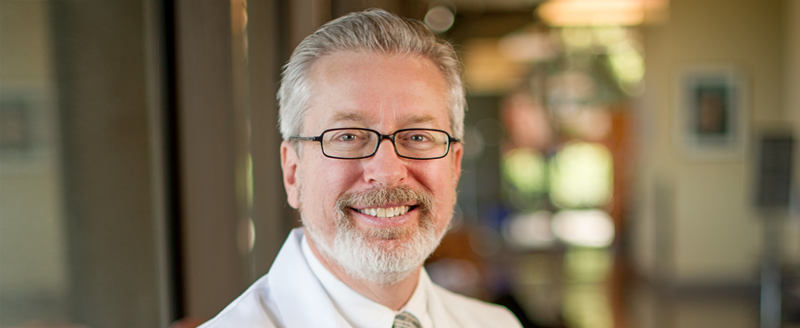Master Clinician: Paul Nadler, MD
Caring for the Whole Patient
 Sprained wrists, stomach pain, skin infections – as medical director of the UCSF Screening and Acute Care Clinic, Paul L. Nadler, MD, sees all these conditions and more. In addition to the fast pace and variety, he enjoys working with his hands. "Building a splint is very tactile and creative, almost like sculpting," says Nadler. "I also get to chat with patients about things that might not come up in a formal medical interview."
Sprained wrists, stomach pain, skin infections – as medical director of the UCSF Screening and Acute Care Clinic, Paul L. Nadler, MD, sees all these conditions and more. In addition to the fast pace and variety, he enjoys working with his hands. "Building a splint is very tactile and creative, almost like sculpting," says Nadler. "I also get to chat with patients about things that might not come up in a formal medical interview."
For example, a patient might mention that he injured his ankle after a Saturday night pub crawl. "I might find out about an untreated condition such as alcohol abuse that could benefit from counseling," says Nadler. "It can be a teachable moment, when they are open to considering issues that might have led to their injury."
Many of the clinic's patients are young people who do not regularly see a doctor. The ailments that bring them in can actually provide a golden opportunity. "My goal is to expand the definition of acute care to also address underlying health issues," says Nadler. He and Ralph Gonzales, MD, MSPH, chief innovation officer for the UCSF Health System, developed a tablet- based questionnaire that patients can complete in the waiting room to identify risk factors for conditions such as HIV or hepatitis B. "It allows us to provide more comprehensive care in a nonjudgmental, efficient way, yet doesn't distract us from the issue at hand," says Nadler.
He also created a system that allows patients to book same-day appointments online or over the telephone. "Before, patients didn't know if they'd be seen in 30 minutes or three hours, and were terrified that if they went to the bathroom, they'd miss their name being called," he said. "When patients feel their time is being respected, they come in happier."
Early in his own career, Nadler found he was underprepared to treat many acute care issues, such as orthopedic injuries and eye conditions. "It's not uncommon for somebody to present to us with significant problems that can be overlooked if you don't ask specific questions or perform specific exam techniques," he says. "We teach residents so they leave with a skill set to effectively take care of their patients."
"Paul is truly revered for his combination of clinical expertise, kindness and generosity," says Fran Dreier, FNP, MHS, who has worked with Nadler for more than a decade. "His answers always stimulate reflection, while respecting the autonomy of the questioner."
Nadler often puts in 12-hour days, including many Saturdays, and sees about 160 patients a week. Yet his enthusiasm continues to energize him. "If a person or their family member is ill, almost nothing else seems to matter," he says. "I'm fortunate to have the training and experience that, in many cases, allow me to make a difference. That's a very privileged position."
In his free time, Nadler enjoys sailing, running and spending time with his wife, Helen, and their young daughter, Elizabeth.